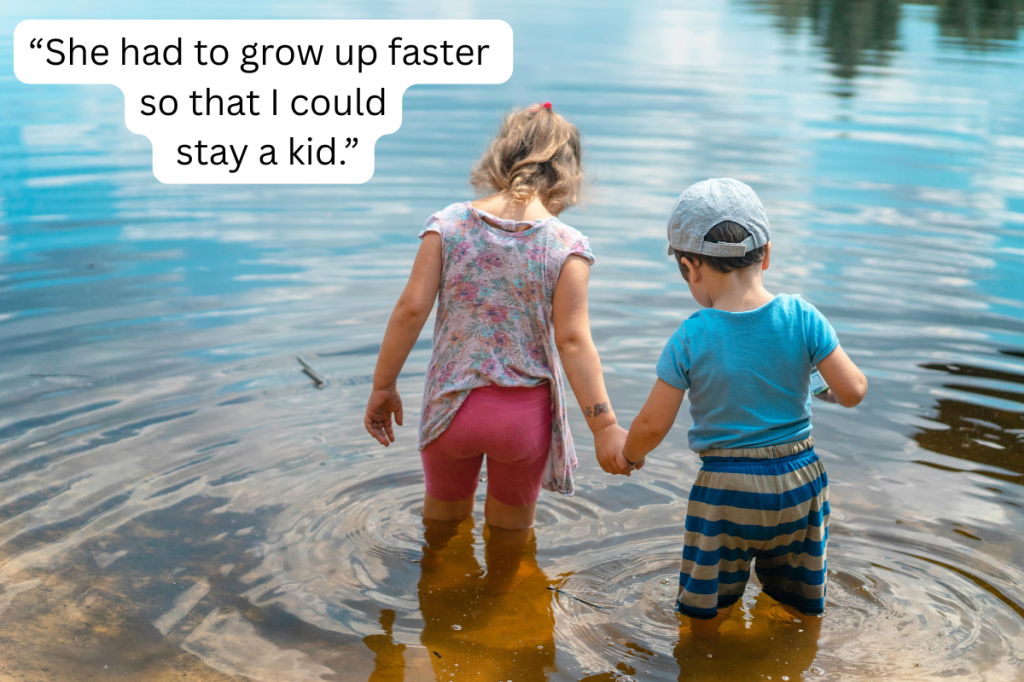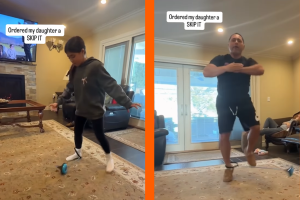If you’re in a relationship, there are pros and cons to sharing your location with your partner. On one hand, it’s a great way to find out where they are so you know (roughly) when they’ll be home, or to make sure they are safe. On the other hand, a controlling partner can abuse the technology, and some folks just want to come and go without being watched even if it’s by someone they love.
Further, if you are against your partner tracking you, what do you have to hide? If you’re not going places that you shouldn’t, why do you care if your partner can see where you are? TikTok creators Maya and Hunter, a young married couple who share videos about their egalitarian relationship, have a theory: couples under 35 have no problem sharing their location, while those 35 and over recoil at the idea.
What type of couples share location data?
“Why does everyone over the age of 35 think that sharing your location with your partner is a prison sentence?” Hunter asks in a TikTok with over 600,000 views. “Every time we talk to someone older about how we have each other’s location, they’re like… Bring out the shackles!” Maya adds. “And I feel like everyone we talk to who’s under 35 just thinks of it as a convenience or safety thing.”
The couple doesn’t see anything wrong with monitoring one another, and although it’s not a big part of their lives, they like to have it just in case. “It’s not that deep. I can’t remember the last time I checked her location, other than just to find out where she parked. It’s just a really interesting social commentary that everyone over a certain age—we think it’s about 35—has this really big issue with, like, a privacy violation and mistrust when you share your location.”
“But I feel with my friends and partner and people I trust,” Maya adds, “I don’t care if they see where I’m going at any time.”
The generational gap in location sharing
The couple believes that the cutoff line is the age of 35, and according to Civic Science, they aren’t far off in their assumption. A generational study finds that younger people are far more likely than older people to share their locations. Gen Z adults aged 18-29 are the most likely to use location sharing (65%), outpacing Millennials (45%) and Gen X (42%), and more than doubling those 55+ (24%).
A significant factor contributing to the generation gap is that individuals aged 35 and under were, at the oldest, teenagers when location technology became available. Heck, folks who are 18 right now never lived in a time when location sharing didn’t exist and were likely to be raised by parents who tracked their locations. Those who are over 35 were adults by the time the technology became available, and they lived in a time where, if you were interested in tracking someone, you were probably a creep. Older people value privacy more because they remember a time when they could be unreachable.
The video divided people in the comments. “I have a theory. People over 35 are old enough to remember not being constantly surveilled,” one wrote. “Because they grew up in an era when the norm was privacy, not surveillance, so it feels like being stalked,” another added.
“Everyone who is against it is shady,” one person confidently wrote. “I totally get what you mean, it’s like older folks see it as a big deal, but for us it’s just about staying connected and safe,” agreed another.
There’s no correct answer to the big location-sharing question. People who don’t do it can brag about their independence and the fact that they trust their partner so much they don’t need to follow where they go. Others may claim they track their spouses out of love and concern for their safety. But the debate does say a lot about how different generations were raised with entirely different expectations of privacy and how it plays out in their closest relationships.






























